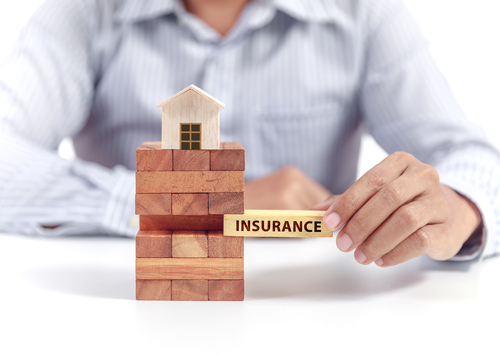Home insurance, or popularly known as homeowner insurance is nothing but property insurance. It covers your home and its belongings in the event of hail, wind, fire, or theft. Continue reading the article to learn more about the basics of this type of insurance, and what it covers.
Homeowner insurance: An overview
Suppose you are the homeowner and want to take a mortgage on your property. You need to provide homeowner insurance to the lending bank before they issue a mortgage. You can acquire the insurance separately, or through the lending bank.
Homeowners who prefer to pick the plan by themselves can opt from a diverse range of insurance policies. They can select the best plan that will work best for them after comparing multiple offers from various companies.
Or else, in absence of any policy, the bank will obtain them for an additional cost. The payment incurred towards the insurance policy will be included in the monthly payments alongside the mortgage. A portion of the insurance coverage will be allocated to an escrow account of the lending bank. Once the bill comes due, it will be settled from the escrow account.
Coverage of the homeowner insurance
Here are the protections that typical homeowner insurance helps to cover.
Dwelling protection – It is the basic coverage of any homeowner’s insurance policy, which covers the structure of your home. It covers your house’s foundation, roofs, and walls. This protection also covers other structures that are attached to your home, like a deck or a garage. All these things will be protected from certain risks.
Personal belongings protection – Homeowner insurance doesn’t only helps in covering damage to your home. It also covers all the personal properties kept within it. For example, your furniture might get damaged by fire, or your electronics are being stolen from the home.
Such protection will pay for any damage to your belongings by repairing or replacing them at a covered risk. Many insurers offer additional coverage for protecting your stuff further. Extended coverage can be bought for valuable items such as jewelry, watches, and similar items.
Other structure protection – Most homeowner insurance policies cover other structures on your property. For example, a detached garage, or a tool shed that is separated from your home but within your property.
Liability protection – This coverage comes into play when anyone gets injured on your property other than people living with you. For example, a visitor while strolling around trips over a broken porch and gets injured. Liability coverage will help the visitor with medical bills, only if you are found guilty.
Things that are not covered under a standard homeowner insurance
Although homeowners’ insurance covers a wide range of disasters, there are exceptions. Damages that came from floods or earthquakes are not covered in a standard homeowner insurance policy. However, a homeowner may get special coverage if the area is prone to such natural disasters.
Such a policy will save their property from earthquakes and floods. These days, almost every policy covers events like tornados and hurricanes. Poor home maintenance will result in accidents or disasters, and these are excluded from the policy.
Issues relating to home maintenance are the owner’s responsibilities. There are some insurance policies that protect against such wear and tear of appliances.
Insurance deductibles and coverage limits
Remember that every coverage in homeowner insurance will be subject to certain limits. That means, the maximum amount to be paid to cover a loss. The coverage limits can be adjusted as per your needs. You can opt to repair or replace your belongings if they are destroyed or damaged within the risk coverage.
In either case, you will have to pay the deductibles before harnessing the insurance benefits. Keep in mind to read the policy contract for a clear understanding of your deductibles and coverage limits. You can then adjust those things as per your needs.
Cost of homeowner insurance
A number of factors will determine the cost of your homeowner’s insurance. That includes the value of your home, features of your personal belongings, and selection of the coverages. There may be an additional cost for extra or increased coverage.
Conclusion
Homeowner insurance will compensate you if anything bad happens to your property in the event of an accident or disaster. There is no need to worry because they will be there when you need them most.

